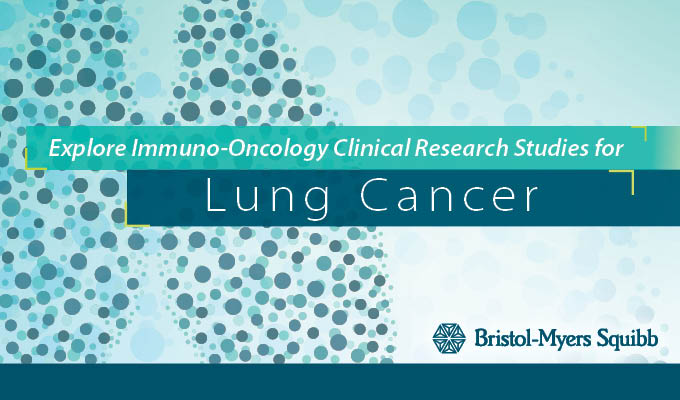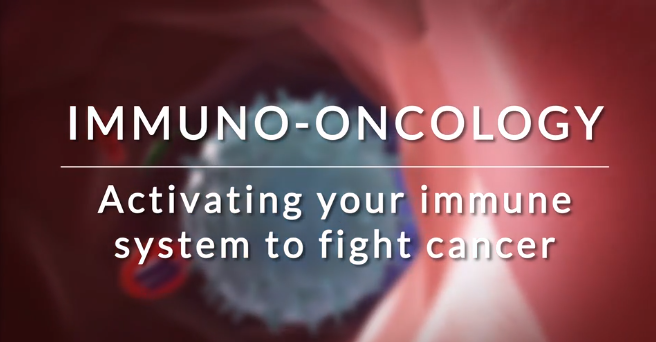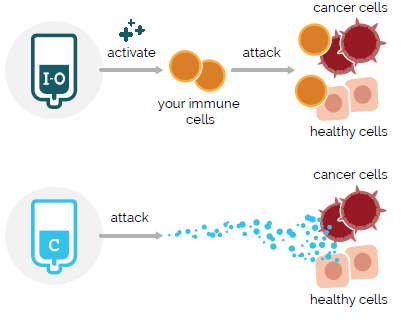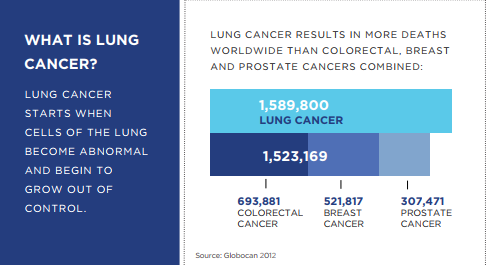We strongly recommend you contact BMS to report Side Effects (Adverse Events)
Side Effects (Adverse Events) and other reportable events are defined here
Report Side Effects (Adverse Events) or Product Quality Complaints: Medical Information
Lung Cancer Clinical Trials

Lung Cancer Clinical Trials
We are investigating experimental medications for both Non-small cell lung cancer (NSCLC) and Small cell lung cancer (SCLC)
Non-small cell lung cancer (NSCLC) accounts for about 85–90% of Lung Cancer diagnoses, while Small cell lung cancer (SCLC) is composed of 10-15% of Lung Cancer diagnoses. These two types of cancer differ in how they grow and how they spread.
Answer a few questions below to see if there are clinical trials that might be right for you.
What is Immunotherapy?

What is Immunotherapy? 3:29
What is Immunotherapy?
Learn how activating your immune system with immuno-oncology treatments may be able to help fight cancer.
Thank you for Considering a Clinical Trial
Below you will find clinical trials that are either currently recruiting patients (noted as Recruiting) or starting to recruit patients soon (noted as Not Yet Recruiting).
Here are some options for you to find more information:
- Browse the trials available on your own and Click on View Trial Details for more information, including locations that are recruiting patients.
- or - - Let us help you find a trial: Pre-Screen Now and answer a few questions to determine if there is a trial that might be right for you.
Non-Small Cell Lung Cancer (NSCLC)
A Study of BMS-986340 as Monotherapy and in Combination With Nivolumab or Docetaxel in Participants With Advanced Solid Tumors
View Trial DetailsA Study of DF6002 Alone and in Combination With Nivolumab
View Trial DetailsA Study of MORAb-202 in Participants With Previously Treated Metastatic Non-Small Cell Lung Cancer (NSCLC) Adenocarcinoma (AC)
View Trial DetailsA Study of BMS-986360/CC-90001 Alone and in Combination With Chemotherapy or Nivolumab in Advanced Solid Tumors
View Trial DetailsSmall Cell Lung Cancer (SCLC)
A Study of BMS-986012 in Combination With Carboplatin, Etoposide, and Nivolumab as First-line Therapy in Extensive-stage Small Cell Lung Cancer
View Trial DetailA Study of DF6002 Alone and in Combination With Nivolumab
View Trial DetailWhat are you thankful for?
Explore Lung Cancer Resources
Quick Guide – Approaches to Cancer Therapy in Clinical Research

Quick Guide – Approaches to Cancer Therapy in Clinical Research
Lung Cancer by the Numbers


